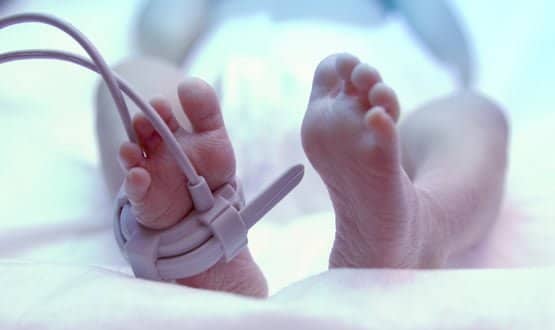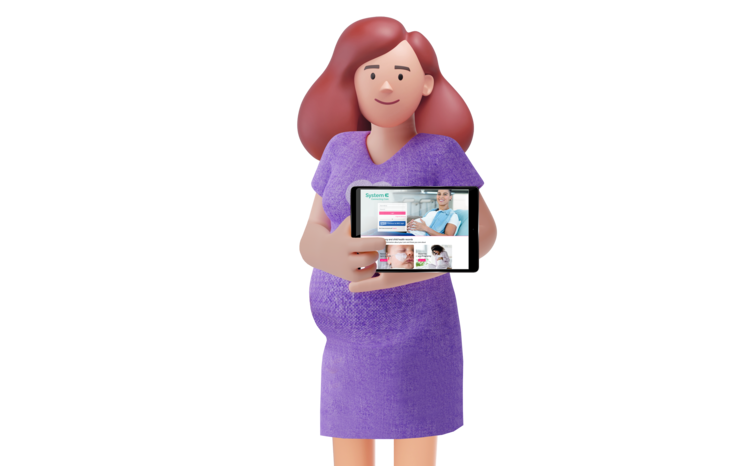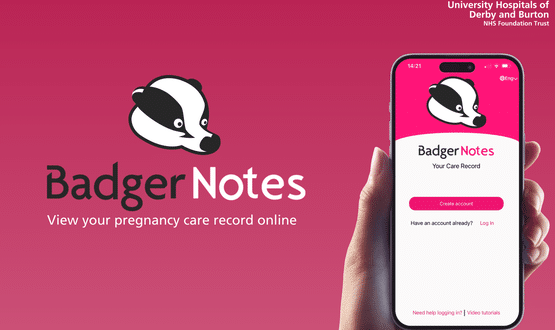Maternity providers making ‘a good start’ at adopting digital, report suggests
- 18 December 2018

A digital maturity assessment of maternity providers by NHS Digital has suggested the majority are making “a good start” with using digital technologies.
Some 135 maternity providers in England completed a self-assessment of their digital progress, including their adoption of electronic health records, data-sharing and offering service users access to online services.
The Digital Maturity Assessment (DMA) also looked at how much investment was being made in software, equipment and infrastructure. The responses were converted into scores, with 100 being the most digitally mature and 0 being the least, with comparative analysis carried out to calculate an overall digital maturity score.
The overall national average score was 51 out of a potential 100. The report suggested that 51 was “a good starting point” and that NHS Digital can now aspire to move the national picture towards the 100″.
The highest and lower scoring criteria were ‘governance’, with a national average score of 77, and remote and assistive care, with an average of 23.
‘Resourcing’, ‘strategic alignment ‘and ‘leadership’ all achieved a score of over 60, while ‘transfers of care’, ‘medicines optimisation’ and ‘records, assessments and plans’ all scored below 40.
‘Infrastructure’, ‘standards’ and ‘business and clinical intelligence’ achieved scores that were just above average.
The report read: “It would appear the maternity providers are often doing well on the same elements but are also encountering challenges in the same areas. This allows a great opportunity for the national teams and networks to focus on solving those common issues.”
However, the report also noted that it was difficult to draw any definitive comparisons of digital maturity levels: “It’s important to note that each section had a different number of questions contained within them and some of the topics explored within certain sections were considered to be ‘aspirations’.
“Therefore, variation between the different section[s] was expected and it may not always be useful to directly compare their scores.”
Regardless, the DMA highlighted common challenges faced by maternity providers and potential solutions that could help them improve their digital maturity. It also allowed organisations to identify their strengths, and gaps in the use of digital services, NHS Digital said.
Julia Gudgeon, clinical advisor for the Digital Maternity Programme at NHS Digital and one of the authors of the report, said: “This report marks an important step forward in explaining the role technology and data can play in driving up safety, quality and efficiency within maternity services.
“We have listened to clinicians working in the field and women themselves, both of which are key to developing the use of digital tools to improve the experience of service users. This insight helps us to understand what to do and what not to do.
“We live in a world where digital technology is transforming our lives and we need to bring these benefits into maternity care.”
The Maternity Digital Maturity Assessment was commissioned at the end of 2017 after Better Births – NHS England’s Five Year Forward View for improving outcomes of maternity services – highlighted worryingly high rates of stillbirths, neonatal and maternal deaths in England.
It is hoped that better applications of technology in maternity services could improve the quality of care provided across the country.
NHS Digital and the Professional Record Standards Body have since published new data standards to support the introduction of comprehensive digital maternity records.
NHS England’s Empower the Person programme, meanwhile, aims to have launched digital red book services in beta form by the end of this year.
Juliet Bauer, chief digital officer for NHS England, said: “Using the best digital technology, from specialist mental health consultations via Skype – as NHS England announced in February – to use of digital records to support maternity services, can improve patient care for women, babies and their families.
“We now want to see greater collaboration across the NHS so those maternity services not using digital can be helped along the journey.”




